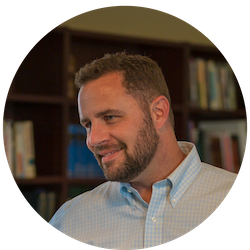Sometimes we have doubts. That’s just part of being human. Or, at least that is what I argued last week. I argued that the presence of doubt does not indicate a problem with Christianity, the Bible, or with Jesus. Rather, the presence of doubt indicates a problem within the human mind. I also mentioned that there are very normal reasons and causes for these moments of doubt like our finitude, sin, and our context. As promised, let give our attention this week to one of those causes: finitude.
Finitude. We are finite creatures with cognitive and intellectual limitations. No matter how much we learn or how much we accomplish, we are nevertheless the kinds of beings that are limited. We must remember that we are the creatures, not the creator. Surely God has no such intellectual limitations. He is the kind of being that can know perfectly and completely. We are different. We are the kind of beings that always “see through a glass darkly” (I Cor. 13:12). We are the kinds of beings that never see with perfect accuracy or think with perfect clarity. As such, uncertainties, doubts, and questions are our companions.
These doubts arise for a wide variety of issues. There are times we struggle with moral decisions. In our own day, for example, we struggle knowing what is right regarding foreign refugees and the possibility of them coming to our country. We also struggle to know what is best regarding foreign diplomacy when conflicts arise from international conflict. But these are just two quick examples. Doubts arise about all kinds of other things as well, including our theological commitments. Our finitude gets in the way of knowledge, confidence, and certainty.
This is a normal result of our finite nature as creatures, and not an indicator of deficiency with Christianity. That should bring us some comfort, but it doesn’t fix the problem. So, what should we do about it? While we can never escape our finitude, we can get to a point where doubts no longer plague us. Let me suggest a few things.
- Be humble. Arrogance and exaggeration are toxic companions to uncertainty. It’s far better to admit our intellectual limitations and press through doubt than pretend all is well and ignore our questions. Having a humble disposition of a learner helps us grow, learn, and increase in confidence.
- Study. Again, as I said last week, this does not mean that you must become an expert. But it does mean that your should read and study. I’ve found that this not only removes uncertainty, but also increases my pleasure in and devotion to God.
- Dialogue. Having friends that you can talk to about these questions is worth everything. Perhaps nothing has helped me more than my friends.
We are finite creatures that have limitations. Doubting is a natural result of that fact. While we can never overcome this completely, we can work against it. There are other causes of our doubting. Next week we’ll take a look at sin and how it effects our ability to know.


